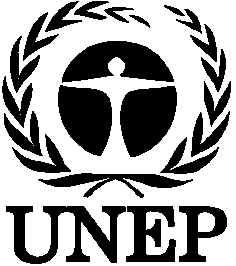UN calls for spending 750 billion dollars in Global Green New Deal
 New York - The world's 20 most advanced economies should discuss investment of 1 per cent of global gross domestic product - about 750 billion dollars - into five sectors to build an environmentally sustainable global economy, the UN Environment Programme (UNEP) said Thursday.
New York - The world's 20 most advanced economies should discuss investment of 1 per cent of global gross domestic product - about 750 billion dollars - into five sectors to build an environmentally sustainable global economy, the UN Environment Programme (UNEP) said Thursday.
Such an amount could finance a "Global Green New Deal," drawing on the idea of the New Deal launched by US president Franklin D Roosevelt to help put an end to the Great Depression in the 1930s.
The G-20 will meet in London on April 2 to discuss measures to fight the worldwide economic downturn.
"The G-20 meeting needs to be a milestone in terms of focusing investments that address the crises of today and those emerging from climate change, natural resources scarcity and lack of decent employment for close to 2 billion unemployed or under-employed people over the coming decades," said Achim Steiner, UNEP executive director.
The 750 billion dollars should go to raise or support energy efficiency of old and new buildings; renewable energies like wind, solar, geothermal and biomass; sustainable transport, including hybrid vehicles, high-speed rail and rapid transit systems; investments in Earth's ecological infrastructure like fresh water, forests, soils and coral reefs; and agriculture, including organic production.
The UNEP Green Economy proposal calls for cutting down energy use in buildings by 80 per cent through cost-effective ways using existing technologies. It says up to 3 million "green" jobs could be created if the construction sectors in Europe and the United States receive fresh investment.
It said the stimulus investments being considered by some countries for the next two to five years could be a once-in-a- lifetime opportunity to make the transition to a low-carbon and resource-efficient society.
"This opportunity must not be lost," Steiner said in presenting the proposal.
Pavan Sukdev, the team leader of the UNEP proposal, said the recommendations included in it should be discussed in coming months by government leaders, the World Bank and International Monetary Fund.
"The sums of money being lined up to stimulate the global economy, unheard of only 12 months ago, will either mortgage the world's future based on a 'business-as-usual' model or deliver an opportunity to transition to a new and more sustainable path," he said. (dpa)